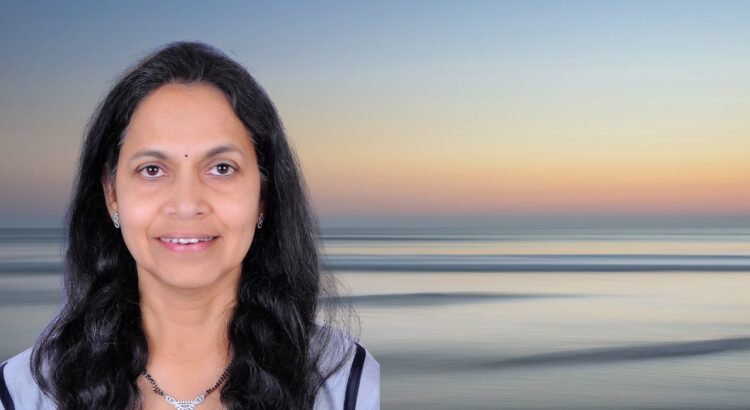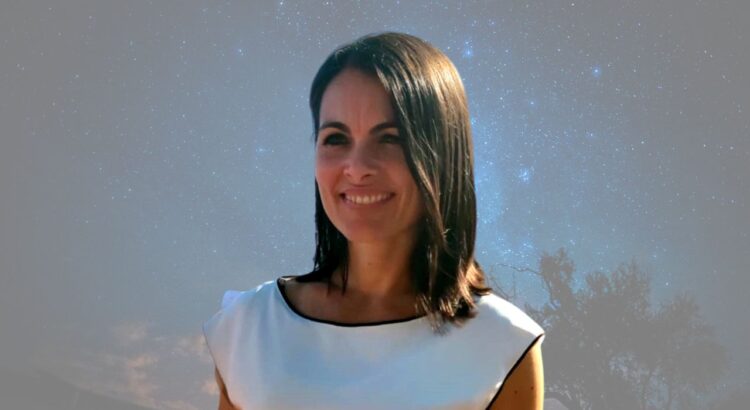Ayurveda turns us beautiful on three levels, says Dr (Vaidya) Manisha Kshirsagar (rupam, gunam and vayastyagam), but we have to live the practise, first. Dr Manisha knew she wanted to be a doctor when she was in 5th grade, and after completing her education in India, she now lives in Santa Cruz, USA, teaching and sharing the knowledge of Ayurveda. She is a Bachelor of Ayurvedic Medicine and Science, a Licensed Massage Therapist, and she graduated from Pune University with a Bachelor’s degree in Ayurvedic Medicine and Surgery. She also trained at the Indian College of Naturopathy and qualified as a Yoga Instructor from the renowned Kaivalyadham University in India. She has been teaching at Kauai Ayurveda academy and other institutes for more than 10 years specialising in women and infant health, skin care and natural beauty treatments. She also offers regular workshops on Ayurvedic cooking and nutrition. In conversation with the Center for Ayurvedic Studies.
Sophia: Did you always want to be a doctor and why did you choose to study Ayurveda?
Dr Manisha: Yes, I decided to become a doctor when I was in the 5th grade. I always wanted to help other people. There were many eminent Ayurvedic doctors in my family and I had seen their work closely and how such a simple and natural thing works amazingly. So I decided to become a doctor of Natural medicine. I am an Ayurvedic Physician and a Naturopath from India.
Sophia: What is like teaching and practising Ayurveda in the West, which relies so much on allopathy?
Dr Manisha: It’s fun teaching and practising Ayurveda and Yoga in the western world. Our Vedic wisdom is amazing. We can offer so many things to the western culture through our wisdom traditions of Yoga and Ayurveda. People are hungry to learn, they have never seen/heard this information before. They embrace and respect our unique heritage. Ayurveda works on all chronic conditions. People are fed up with western medicine so they are ready to make changes in their diet and lifestyle with natural medicine. During the Pandemic, people have accepted the fact that “Health is the Real Wealth.” They are now inclined towards self-care rituals and healthy habits. Simple tools like turmeric ginger concoction, hot water, nasya, gargles, worked effectively for Covid 19 prevention. During the pandemic, we were teaching our clients how to follow an anti-inflammatory diet, self-detox, self-massage, nasya to improve their immunity and vitality…. People were fearful, anxious, depressed and lonely, so working on their emotional health was also a priority. Meditation, yoga, breathing and positive affirmations worked very well for mental and emotional well-being. These spiritual practices improve our awareness and motivate us to lead a health-conscious lifestyle.
Sophia: How has Ayurveda affected your life on a personal level?
Dr Manisha: Growing up, I grew up in a household that utilised Ayurvedic principles to treat common health conditions. Simple remedies like clove- turmeric concoctions for a sore throat, cumin-coriander-fennel tea for headaches and PMS, buttermilk with dried ginger for diarrhoea, etc. It wasn’t until I formally studied Ayurveda in college that I understood the true benefits of these ancient recipes. There is a scientific logic to all the recommendations. You also need to walk the talk. I try to follow all the good things that I tell my clients in terms of daily routine, seasonal routine, detoxification etc. And that keeps me healthy and happy.
Sophia: You specialise in women's health and infant health. Tell us how you use Ayurveda in both contexts?
Dr Manisha: I often tell my patients that good child care begins before you conceive. That applies to mother and father both. If you want a healthy progeny, you need to work on your cycle and hormones. Ayurveda has a vast description on women’s health, all the different transitions that a woman goes through (baby girl, teenage, pregnancy, delivery and menopause) and how to take care of your physical, mental, emotional and even spiritual health during these transitions. We often teach our clients about diet, exercise, sleep, herbs, spices, herbal supplements during these transitions. These are all the tools I use in my practice, along with emotional support. I also help them align their biological rhythms with the environment. This promotes well-being and balances all the hormones. I help them understand the connection between the menstruation, conception, delivery and lunar cycle. Women’s physiology is all about the hormonal interplay. Because of our hectic lifestyle, our hormones tend to get erratic and can lead to many imbalances. Same thing with infants also, many new moms and babies have a lot of problems with breastfeeding, baby formulas, sleep, tummy aches, teething, etc. during these times a mother needs to take care of herself and her baby. I teach them how to do a mother-baby massage, home remedies for teething and how to improve the quality and quantity of breast milk. In India women are blessed with this kind of traditional knowledge and also support from the extended family and neighbours. In the west, they don’t have the same support from their family and with lack of holistic knowledge, it can be very stressful.
Sophia: You also specialise in skin and beauty treatments. How is an Ayurvedic beauty ritual different from a regular spa?
Dr Manisha: Ayurveda truly understands that lasting beauty is the beauty from within. It is an inside-out approach to beauty as opposed to an outside-in one. Every Ayurvedic treatment is tailor-made for a person’s unique body constitution. In order to help them not only reverse their imbalance but promote inner, outer and lasting beauty. Beauty is not found in any lotion or potion, you need to work on three levels of beauty.
- Outer Beauty (Rupam): you can achieve this by diet, exercise, sleep and other healthy habits
- Inner Beauty (Gunam): You need to find out your good inner qualities and learn to cultivate and boost your skill sets. Find out how unique you are and how blessed you are.
- Lasting Beauty (Vayastyagam): If you manage your inner and outer beauty then, you will become an example of lasting beauty which exudes elegance, femininity, and True Beauty (Satyam Shivam Sundaram).
Sophia: What are your favourite books on Ayurveda?
Dr Manisha: “Science of Being and Art of Living” by his holiness Maharishi Mahesh Yogi is a great example of how Ayurveda and the traditional sciences can be of use in today’s modern world. Maya Tiwari’s “Secrets of Healing” talks extensively about home remedies and the simple treatments for well-being in an accessible way. Lastly, Deepak Chopra’s “Perfect Health” is a guide for anyone who is just beginning on their path of healing. It highlights the major points of focus that one needs to make to gain maximum results.
Sophia: Who have been your mentors and inspirations?
Dr Manisha: My first mentors were my parents who practised and continue to practise Ayurveda in their daily lives. A living breathing example of what perfect health can look like. I have had many inspirational teachers like Vaidya B P Nanal, Maharishi Mahesh Yogi, Drs.PH Kulkarni, Subhash Ranade, MY Lele, and many others. I also have some wonderful colleagues such as Drs. Deepak Chopra, Sheila Patel, John Doulliard and Marci Shimoff.
Sophia: What is your view on weight-loss diets vs following a consistent Ayurvedic diet?
Dr Manisha: Weight loss diets trick our body for short periods of time. You have to keep in mind that weight loss is not a natural state for the body to be in. Ayurveda uses your unique body type to make sure that you are changing your body composition in a healthy and balanced way without any long term side effects.
Sophia: Is Ayurveda restricted to just food and diet?
Dr Manisha: Absolutely NOT! Ayurveda is literally translated to the science of life. Which takes into account not only your lifestyle in terms of diet, exercise and daily routine, but more importantly it teaches you about yourself! Ayurveda is used as a tool to increase your self-awareness and then being able to connect it to Mother Nature. It is a microscope into who you are and a mirror towards what you could become.
Sophia: What is your advice to young students and practitioners of Ayurveda?
Dr Manisha: Start practising what you are learning as early as possible. Ayurveda is a qualia science, which means it needs to be experienced. The more you learn about ayurveda the more you will realise how much more there is to learn. Do not get discouraged but rather use your friends and teachers to synthesise that wisdom. Your patients are a reflection of divinity and patient care is God’s work. You learn a lot from your clients. Their transformation is transforming you as a healer, educator and practitioner. You want to keep in mind, when you help someone, sometimes you gain wealth, but sometimes, you will gain a friend or you will learn something new. This is why your duty (Dharma) is to help someone. So never think “I have wasted my time and energy”, but rather how it helps you to polish your skills.


